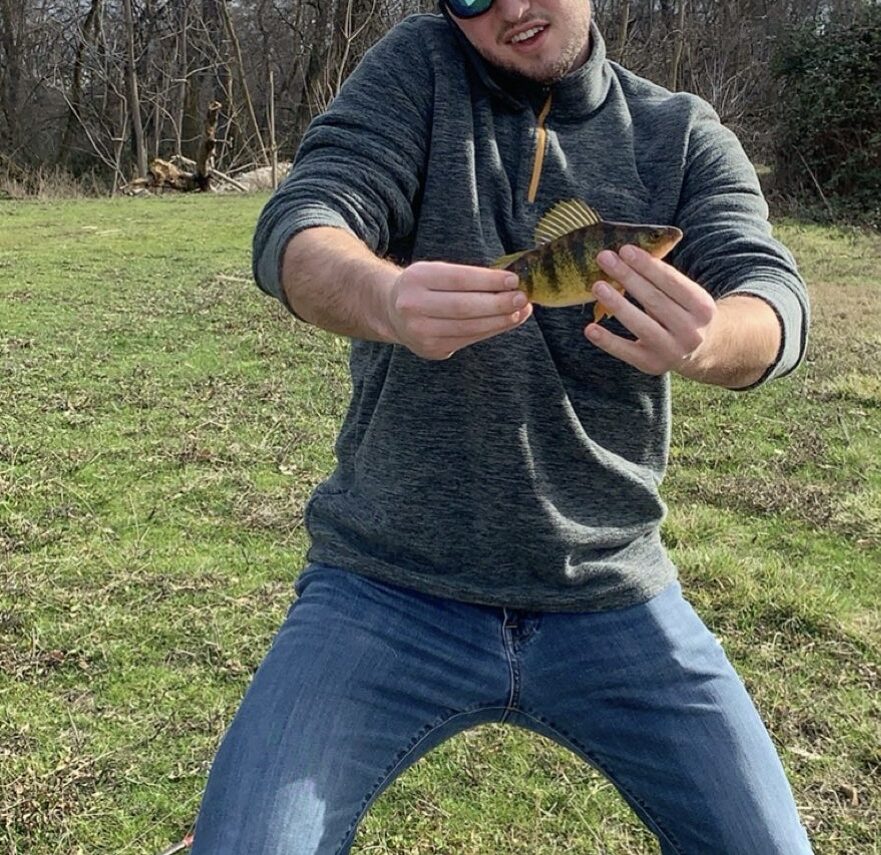Maxime Pellet (MP): Can you please update me on some basic information, including your date of graduation from the EV program, current employer and position?
Vince Hewitt (VH): My graduation was Spring of 2017. I’m working for Rivaura Estate Vineyard and Winery out in Lewiston, ID, which my family owns. Right now, I am one of the assistant winemakers along with my cousin Lane, who also graduated from the EV program. You can find us on social media at @rivaura_wine.
MP : How did you get into wine?
VH : I like to think that wine found me. I did not grow up with parents who really drank wine, we mostly just worked on the farm back in Idaho. But after my first year of college, I knew I did not have what it takes to be a chemical engineer, but knew I still had a background in agriculture. And at that time my family was getting into this crazy idea of planting a vineyard but had no idea where to start. That is when I figured I would give it a chance and go to school for viticulture. I remember before classes even started, they were having us clean tanks, pick grapes, and start making wine before I even knew anything about it. Getting your feet wet and just learning as you go was such a great experience that I immediately fell in love with the whole process.
MP: Is there someone in the EV world that you admire, including fellow EV alums?
VH : I admire JJ and Kelly Menozzi, the owners and winemakers of Aluvé Winery. They were classmates of mine when going through the program back in 2015. I do not know how they went to every class and managed a winery and tasting room all at the same time. They are incredible people and I have so much respect for what they do.
MP : What’s special to you about working in the wine industry?
VH : The wine industry is great because you get to meet all types of people. From farmers to chemists to wine geeks that know Burgundy better than I know the back of my own hand. There is an array of backgrounds that you can come from and for everyone to have a common interest about.
MP : What is your favorite part of your job?
VH : I love that every vintage is a totally new experience. There is always a challenge that is presented that you could never prepare for that you have to figure out how to resolve. From the vineyard to the winery, nothing goes as planned and adjustments need to be made to try and keep the wines at their highest potential.
MP : What are some of the challenges you’ve faced in the industry?
VH : The only challenge I have really faced in the industry is growing grapes out in Idaho. As far as getting supplies and getting vineyard help, it is always a struggle to get things out here. But because of this we have adapted to more mechanized approaches to vineyard management.
MP : What do you think differentiates and excites you about Washington wine?
VH : What excites me is that there is potential for vineyard sites at higher elevations around the state. I believe the cooler climate will give rise to new and fun varietals that will keep the industry changing and on their feet for the new generation of wine drinkers. I also believe that this is true throughout the entire Pacific Northwest. Out here in Idaho there is so much potential for vineyard sites that can grow an array of wines from Bordeaux to Rhone to Burgundy varietals. The next generation of wine drinkers are looking for something different, something unique that they can tell their friends about what they found.
MP : How do you foresee climate change or social issues affecting the local industry in the next few years?
VH : What excites me is that there is a lot of potential for new planting sites in areas that can be dry farmed. Becoming more sustainable with the ability to not need water rights is going to be a game changer when water might become scarcer if climate change continues the way it is. Being in these areas also brings cooler climates which will also benefit the wine grapes, especially if we continue to get hotter and hotter. The industry is going to need to be more sustainable, and cutting out the mandatory watering with drip irrigation will be a great starting point.
MP : What are some up-and-coming trends in wine that you’re following?
VH : I think the new trend to more fresher acid-forward wines is very interesting. Not letting the grapes get as ripe and concentrated to retain some acidity and liveliness to the wines is a very interesting concept. I think it is something new and trendy, so we will see if the consumer will continue to buy these wines or not.
MP : What advice can you share with future EV graduates?
VH : My advice would be to go out and travel and experience different winemaking/viticulture practices and techniques and see what you like versus what you do not like. There are so many ways to go about putting the final product in the bottle and just because one person does it one way doesn’t mean that it is the best way to do it.


Join the Conversation